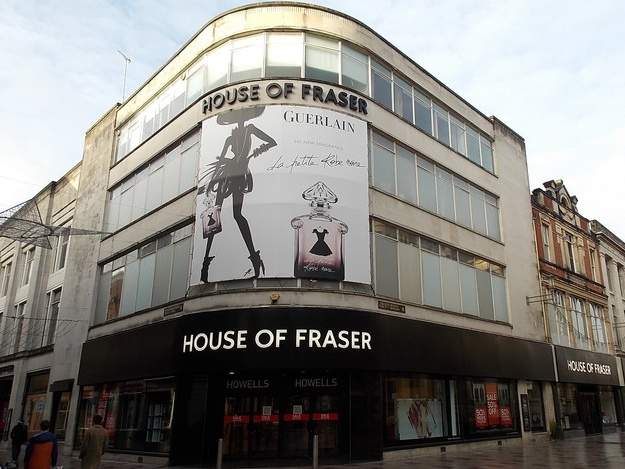
Department store chain House of Fraser has appointed accountancy firm KPMG to advise on reconstructing plan and examine all options, including Company Voluntary Arrangement (CVA).
The reconstructing plan could involve store closures and job losses. House of Fraser has 59 department stores, 6,000 staff and 11,500 concession staff.
In January, House of Fraser asked its landlords to cut rents after the retailer suffered poor trading over the Christmas period. Under a CVA, the group would try again to obtain an agreement from the landlords to reduce rents.
A House of Fraser Spokesperson said: “We are working with KPMG to look at options that best support our transformation programme”.
The company has yet to confirm its decision.
China-based Sanpower group, which acquired House of Fraser for £450m in 2014, reaffirmed its commitment to the business last month by injecting £15m into the company.
Sanpower Spokesperson said: “We at Sanpower continue to support House of Fraser as it embarks on a year of significant transformation in 2018,” he said. “Sanpower, through the listed company, has invested £45m in House of Fraser and plans to inject further capital.”
House of Fraser has two Chinese outlets, and struggling UK outlets whose revenues are under pressure from high costs.
Retail Economics chief executive Richard Lim said: “They’ve got too much space, inflexible leases, upward-only rent reviews and are also facing pressure from the national living wage.
“It’s all putting significant cost pressures on operating their stores, so operating costs are up 3% year on year, which outstrips the sales rise. One of the biggest issues around inflation is that it’s mainly coming from food, transport and housing costs.
“If you take those three components, that takes up about 50% of the least affluent households’ expenditure and it’s non-discretionary. People are worried about Brexit, about personal finances, about job security, so they’re holding back on purchasing non-essential items,” Lim added.
Real estate group Colliers’ head of retail agency David Fox said: “When you have surplus space that still costs you money it’s just a drain on resources.
“I’m guessing they’ll be exploring options to release space and come up with an economic answer.”
In December, House of Fraser’s credit rating was downgraded by Moody’s credit agency. Moody’s pointed out House of Fraser’s weak results for the first three quarters of 2017 which were due to ‘both challenging market conditions and company-specific factors’.
Moody’s said: “A recovery in House of Fraser’s profitability is dependent upon either an improvement in the company’s product offering or in cost-savings initiatives, which each involve execution risks.”
Other high-street brands have also been struggling over the recent months in the face of online competition.
Toys R Us and Maplin went into administration in February, while New Look and Carpetright have entered CVAs.
Mothercare, Debenhams and Homebase are the latest retailers under pressure from decreasing sales.



